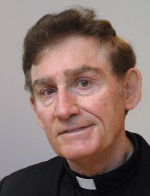As I sat on the front porch of my apartment recently, a U.S. Capitol Police car raced by. Minutes later, dozens of police cars, fire engines and ambulances followed with a helicopter hovering overhead. Road barricades protecting the perimeter of the U.S. Capitol building were activated halting all traffic, as authorities grabbed their rifles.
The commotion I witnessed was over a man who, authorities said, had entered on March 28 the area of the U.S. Capitol Visitor Center, pulled out a gun and was immediately shot.
Some visitors who had endured the ordeal trembled when interviewed. Some said terrorism immediately came to mind. The word terrorism puts in our head the idea of being paralyzed by fright. Tourists who experienced the trauma spoke of running for safety and huddling as their life had suddenly come to a halt. That’s what we’re expected to do: come to a halt and spend life in fear.
When President Barack Obama attended a baseball game in Cuba right after the March 22 attacks in Brussels, some said he was insensitive for not putting a stop to his trip. They wanted life to come a halt.
[hotblock]
In Belgium, government officials advised people after the attacks to avoid crowds and stay home, bringing their lives to a halt. Some ignored it. Both incidents reflected terrorism’s attempt to paralyze life through fear, yet others finding a way to keep going.
How can terrorism and its numerous tentacles be effectively countered? The answer is found in the example of Mary looking for Christ after his crucifixion. No doubt Christ’s followers were terrified, numbed and shocked by his excruciating death. Their lives had suddenly come to a halt. Yet Mary was not paralyzed or motionless. Rather, she went looking for Christ, exemplifying a sense of mission.
That type of paralysis that terrorism inspires in others exists everywhere in life. Some of the worst domestic disputes I have seen involved a wife terrified by her husband and the other way around. Many children have been psychologically scarred for life because of terrorizing parents. Some teachers have terrorized students, making them feel as if they are total failures.
In the workplace, fear-provoking situations are often responsible for people having no desire for being efficient, taking pride in their work or being a team member. The list of terror’s destruction is endless.
Mary is a beautiful example of looking for Christ, even as others want us to bring life to a halt or make us fearful and suspicious of one another. To look for Christ in our life is to look for opportunities to practice civility at its best and make others feel at home and being free from paralyzing fears.
It is living like Mary, not frozen by fear, and treating others as we would want them to treat us that can ultimately help us to live Christ’s love — the perfect way to counter all forms of terrorism.
PREVIOUS: ‘The Catholic Catalogue’ tells of life lived with faith
NEXT: Discovering the most important goal of all




Share this story